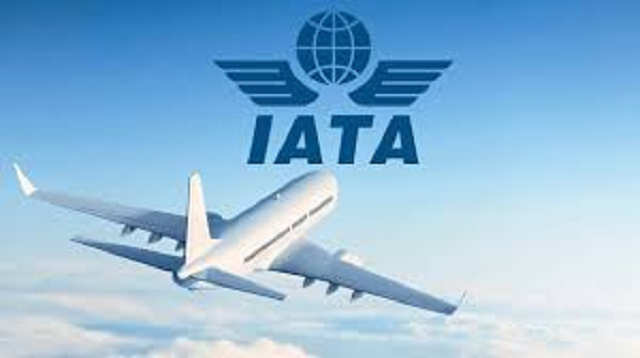The International Air Transport Association(IATA), a trade association for international airlines with headquarters in Switzerland, recently reported that the total amount of foreign airlines’ trapped funds in Nigeria has increased to $802 million.
IATA consequently cautioned the Nigerian government that the circumstance could hinder air connectivity, economic development, and the growth of the nation’s airline industry.
IATA’s Director-General, Willie Walsh, gave a speech on Monday to introduce “Focus Africa,” a new program designed to increase aviation’s contribution to the economic and social development of Africa. Additionally, the project will increase shippers’ and passengers’ access to connectivity, security, and dependability.
“This is a very important issue for airlines and IATA because airlines may be forced to reduce their service in the countries blocking funds. It may have an impact on the expansion of African aviation,” according to Walsh.
Nigeria was previously listed as the nation with the highest amount of blocked funds in both Africa and the world by IATA Chairperson-designate and Chief Executive Officer of RwandAir, Yvone Makolo.
She claims that there are $1.6 billion worth of blocked funds in Africa, of which $802 million is in Nigeria.
She named Algeria as the African nation with the most blocked funds.
66% of blocked funds were in Africa, lamented Kamil Al Awadhi, Regional Vice President for Africa & Middle East, IATA.
He identified blocked funds as a significant issue that could impact the project for the Single African Air Transport Market and limit the potential for growth of the continent’s aviation industry.
“One of the biggest problems that will impact aviation is blocked funds. The amount of funds that have recently been blocked has increased 10%. The total amount of funds blocked is enormous. The IATA VP continued, “This is one of the issues we need to address to move forward.
Al Awadhi stated that IATA had several interactions with the Nigerian government regarding the blocked funds and added that the association would continue talks with the new administration, which is expected to take office in May.
Hadi Sirika, the minister of aviation, announced last month that the government would hasten the repatriation of frozen funds.
Walsh, the IATA DG, stating that the program would bring together public and private stakeholders to produce quantifiable progress in six areas.
“Although Africa has 18% of the world’s population, it only participates in 2.1% of aviation activities” (combined cargo and passenger). Focus Africa’s main goal is to close that gap so that Africa can take advantage of the connectivity, jobs, and growth that aviation enables”, he said.
The customer experience is impacted by infrastructure limitations, high costs, poor connectivity, regulatory barriers, a slow uptake of international standards, and a skills shortage, all of which have an impact on the viability and sustainability of African airlines.
The association reported that for the fiscal years 2020–2022, carriers on the continent lost a total of $3.5 billion. Additionally, it predicts additional losses of $213 million in 2023.
IATA states that it is essential for bringing people together and fostering opportunities for economic and social development that the African continent be sustainably connected both internally and to the world’s markets through air travel.
Additionally, it will help the continent of Africa achieve its Sustainable Development Goal of removing 50 million people from poverty by 2030.
Aviation is especially important for trade and tourism, which have enormous untapped potential to boost prosperity across the continent, create jobs, and reduce poverty.
The argument for increasing aviation’s contribution to the development of Africa is well-founded. 7.7 million jobs and $63 billion in economic activity were supported by pre-COVID aviation in Africa. Over the next 20 years, demand is predicted to triple.
The continent of Africa stands out as having the most potential and opportunities for aviation. IATA’s dedication to assisting aviation on the continent is reaffirmed by the Focus Africa initiative.
IATA Chair Makolo continued, “I look forward to making sure that this initiative gets off to a great start and delivers benefits that are measurable as the incoming Chair of the IATA Board of Governors and the first from Africa since 1993.
“The obstacles that the African aviation industry faces can be overcome. There is definitely room for expansion. And many economies have already experienced the economic boost that a more prosperous African aviation sector will bring”.
Stakeholders are working together through Focus Africa to deliver on six important focus areas that will have a positive impact.
According to Walsh “we’ll evaluate our progress and hold one another responsible for the outcomes.”
The Africa Focus initiative has six main areas of focus: future skill, connectivity, finance and distribution, sustainability, infrastructure, and safety.













